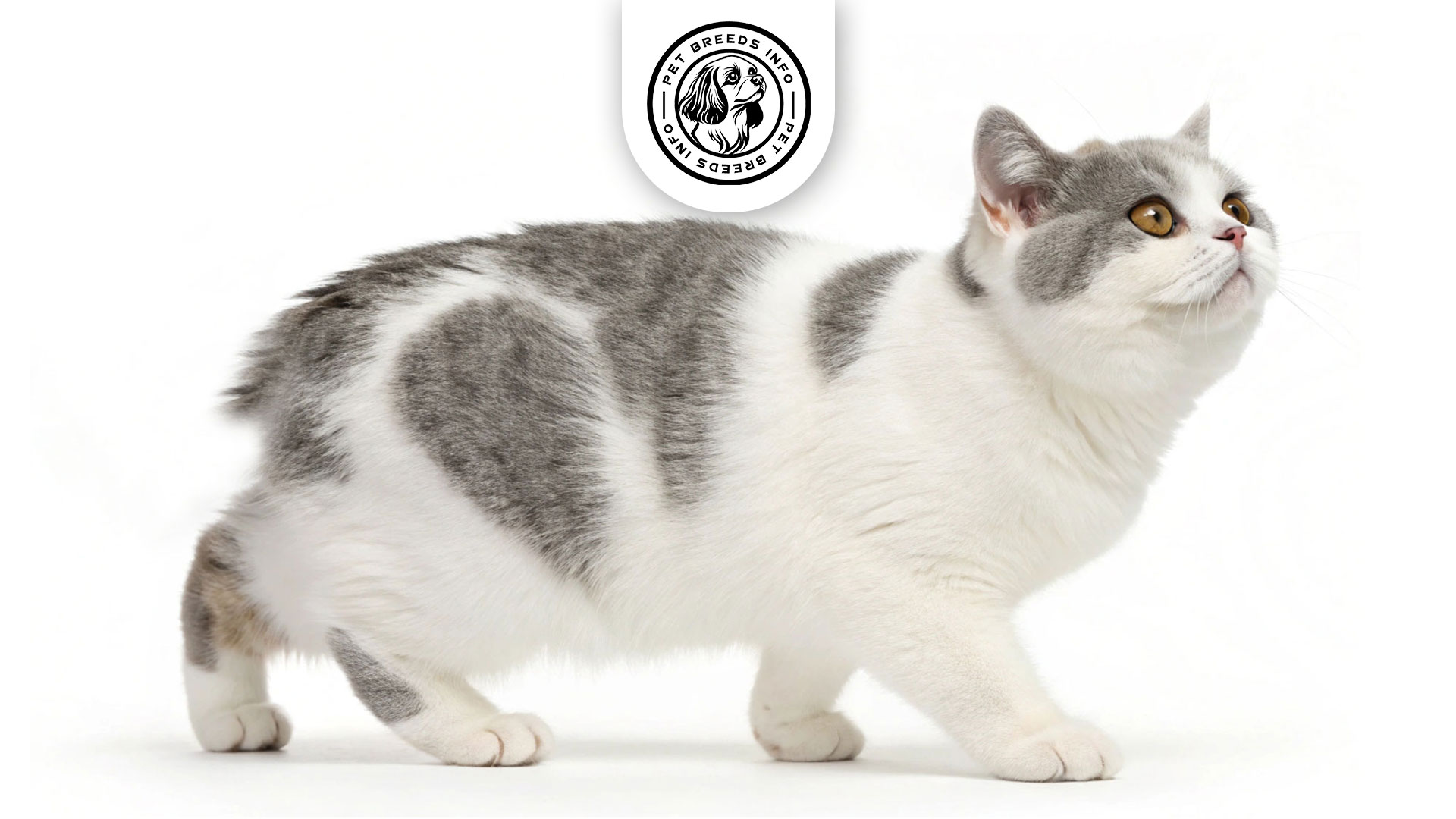Manx Cat Breed: Size, Health, Price & Personality
General Introduction of the Breed
The Manx cat is a unique and distinctive breed, best known for its tailless appearance. In English, it is simply called the Manx, while in its native Isle of Man, it is known by the same name. This breed is sometimes referred to as the “Stubbins” by locals.
Originating from the Isle of Man, a small island in the Irish Sea, the Manx cat has a long history dating back centuries. It is believed that a natural genetic mutation led to its tail lessness, which was then perpetuated by the island’s isolated feline population.
Manx cats are tailless, affectionate, and intelligent companions with moderate care needs. Ideal for families, they’re playful and social but may have health issues.Quick Overview
Affectionate - 90%
Independent - 70%
Intelligent - 95%
Sociable - 85%
Vocal - 50%
Shedding - 60%
Energetic - 65%
74%
100
| Weight | Males: 9-13 lbs (4-6 kg); Females: 7-11 lbs (3-5 kg) |
| Lifespan | 12-16 years |
| Color | Black, white, blue, red, cream, tortoiseshell, tabby, various bi-color combinations |
| Diet | High-quality cat food, portion control, avoid toxic foods |
| Care | Moderate daily exercise, grooming (depending on coat length), regular hygiene |
| Health | Prone to Manx Syndrome, arthritis, digestive issues; regular vet checks |
| Nature | Intelligent, playful, affectionate, social, adaptable |
| Price | $400 – $1,500 (breeder); $50 – $200 (rescue) |
Table of Contents
Physical Characteristics
The Manx is a medium-sized cat with a muscular and compact build. Males typically weigh between 9-13 pounds (4-6 kg), while females range from 7-11 pounds (3-5 kg).
Its coat is dense and can be either short-haired or long-haired. Available colors include black, white, blue, red, cream, tortoiseshell, tabby, and various bi-color combinations.
Manx cats have large, expressive eyes that come in shades of green, gold, or blue, depending on their coat color. Their ears are medium-sized, slightly rounded at the tips, and set wide apart on the head.
The most distinctive trait of the Manx is its tail, or lack thereof. Some Manx cats are completely tailless (referred to as “rumpy”), while others have a short stump (“stumpy”) or a partial tail.
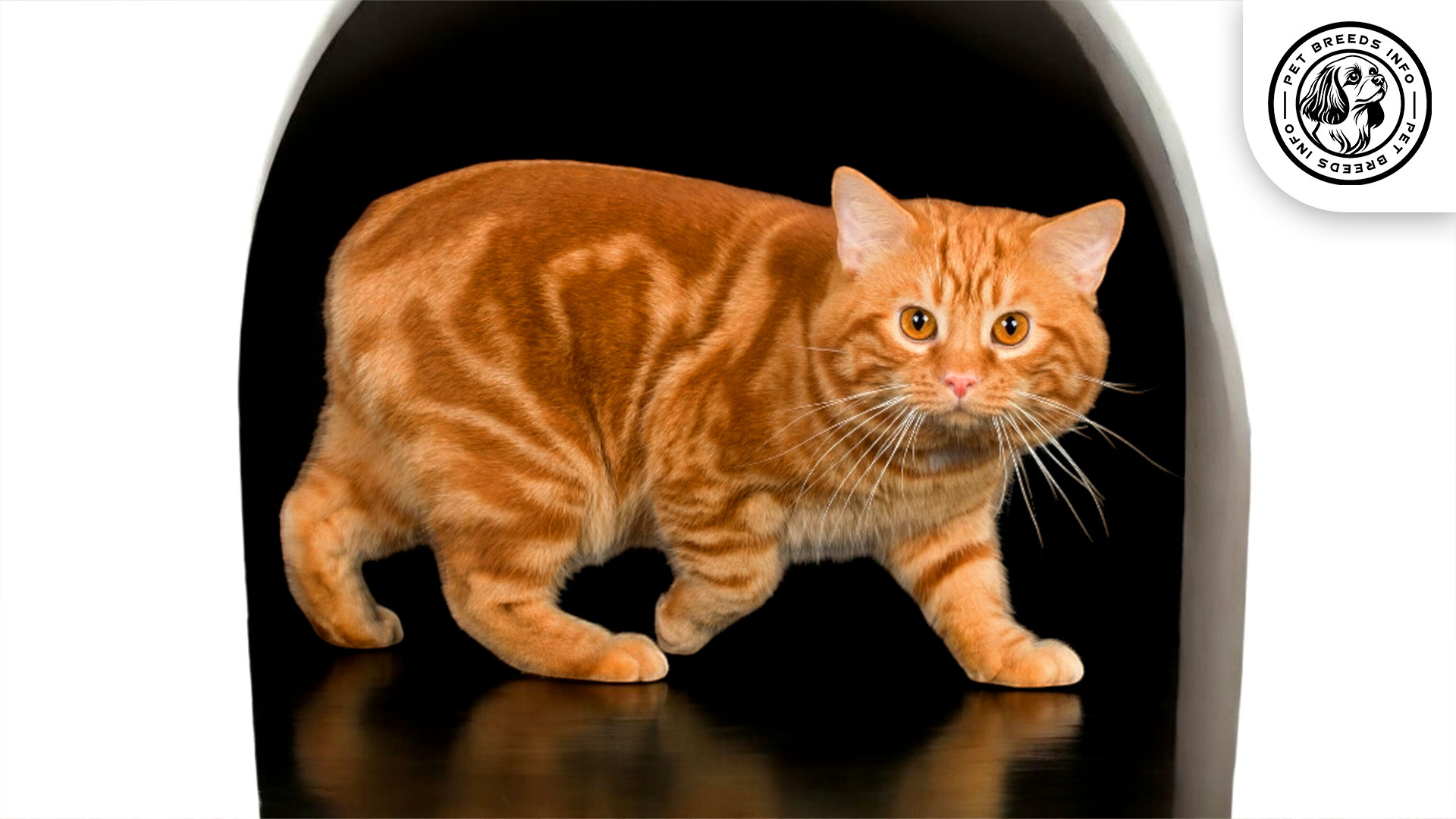
Personality and Temperament
Manx cats are highly intelligent and quick learners, making training and problem-solving easy for them. They have a playful and curious nature, often engaging in interactive games with their owners.
They are moderately active cats that enjoy playtime but are not overly energetic. This breed forms strong bonds with its owners and enjoys companionship, often following their humans around the house.
The Manx is affectionate and social, making it a great family pet. It gets along well with children, other cats, and even dogs if introduced properly. While it has a strong hunting instinct, it is also very playful.
Manx cats can be sensitive to changes in their environment and may take time to adjust to new situations.
Read More: Birman Cat
Care and Maintenance Requirements
The Manx requires moderate daily exercise, which can be fulfilled through interactive play sessions. It adapts well to apartment living as long as it has enough mental and physical stimulation.
Grooming needs depend on coat length; short-haired Manx cats require weekly brushing, while long-haired varieties need more frequent grooming to prevent matting. Shedding is moderate.
This breed tolerates cold weather well but may be sensitive to extreme heat, so owners should ensure a comfortable temperature indoors.
General hygiene includes regular nail trimming, ear cleaning, and occasional bathing. Dental care is important to prevent oral diseases.
Diet and Nutrition
A well-balanced diet consisting of high-quality dry or wet food is recommended for the Manx cat. A protein-rich diet supports muscle development and overall health.
Portion control is crucial to prevent obesity, as Manx cats tend to gain weight easily. They should be fed measured portions 2-3 times per day rather than free-feeding.
Foods to avoid include chocolate, onions, garlic, fatty foods, and excessive carbohydrates. Fresh water should always be available.
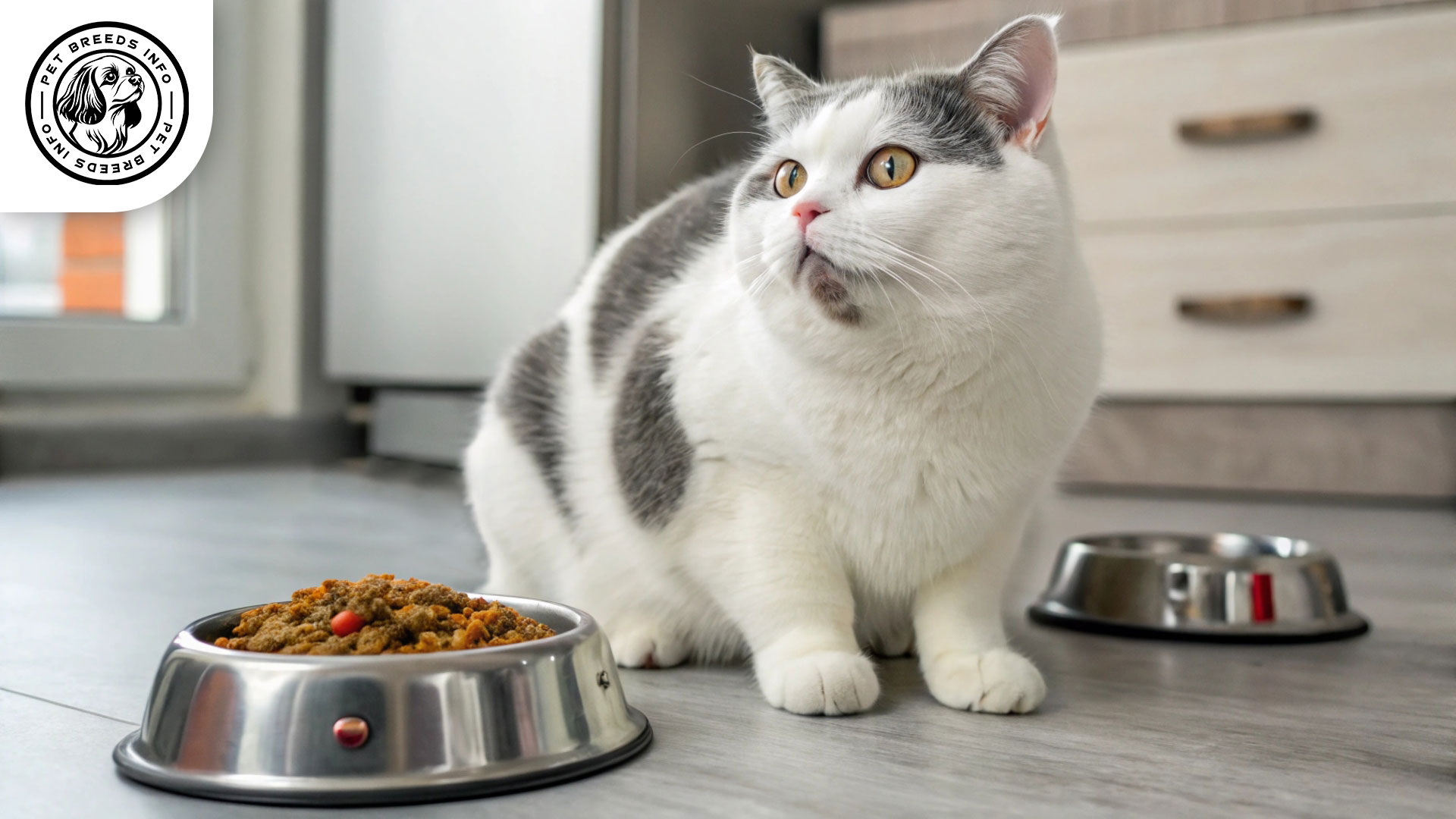
Health and Common Medical Issues
Manx cats are generally healthy, but they are prone to specific genetic conditions such as Manx Syndrome, a spinal defect linked to their tailless gene.
Other potential health issues include arthritis, digestive problems, and urinary tract disorders. Regular veterinary check-ups are important to monitor their well-being.
The breed’s average lifespan ranges from 12 to 16 years with proper care. Routine vaccinations, deworming, and parasite prevention should be maintained according to veterinary guidelines.
Read More: Bombay Cat
Training and Behavior Management
The Manx cat, known for its distinctive tailless or short-tailed appearance, is an intelligent and social breed that responds well to positive training techniques. Their playful and dog-like personalities make them eager to learn tricks, respond to commands, and even walk on a leash with consistent training. Early socialization is key to ensuring a well-adjusted Manx, as they thrive on interaction with humans and other pets. Use reward-based methods, such as treats and praise, to reinforce good behavior, and maintain short, engaging training sessions to keep their curious minds focused. Patience is essential, as their independent streak can occasionally lead to stubbornness, but their loyalty and affection make the effort rewarding.
Managing a Manx cat’s behavior involves understanding their high energy levels and need for mental stimulation. These cats love to climb and explore, so providing interactive toys, scratching posts, and vertical spaces can prevent destructive habits. Manx cats may exhibit strong hunting instincts, so redirecting this energy into playtime activities like feather wands or puzzle feeders is effective. Consistent routines and a calm environment help curb any anxiety-driven behaviors, while regular grooming and health checkups ensure their physical well-being, which directly impacts their temperament. By fostering a stimulating and loving environment, Manx cats become well-mannered, delightful companions.
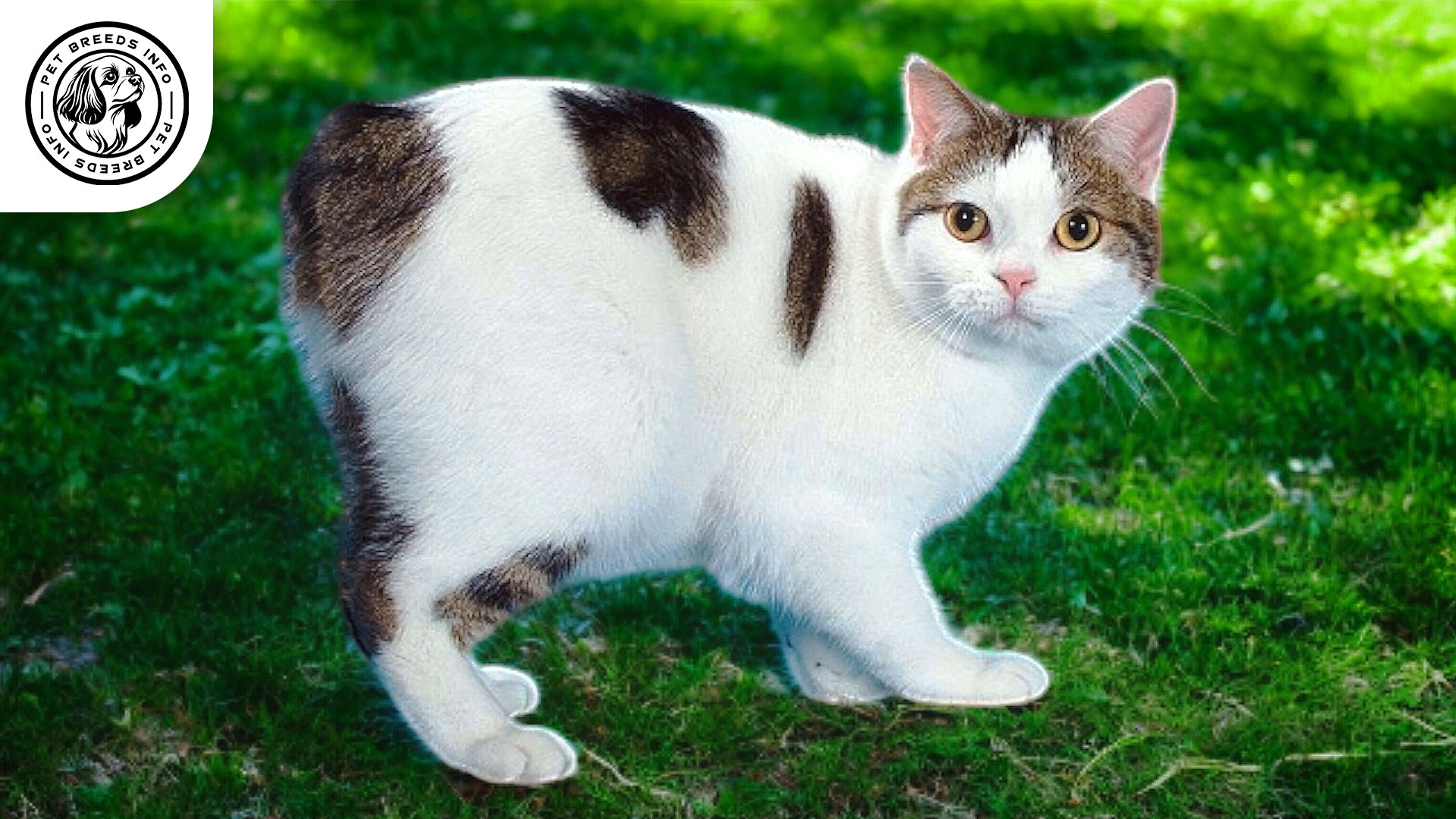
Interaction with Other Animals and Humans
Manx cats are renowned for their sociable and affectionate nature, making them exceptional companions for both humans and other animals. This breed thrives on human interaction, often forming strong bonds with their owners and displaying a dog-like loyalty that includes following them around the home or seeking out lap time. Their friendly demeanor extends to children and strangers, provided they are properly socialized from a young age. To foster positive human interactions, engage Manx cats with regular play and attention, as their intelligent and curious personalities crave mental and emotional connection. A loving and consistent environment ensures they remain outgoing and welcoming.
When it comes to other animals, Manx cats typically adapt well, especially if introduced gradually and in a controlled setting. Their playful and non-aggressive temperament allows them to coexist harmoniously with other cats, dogs, and even smaller pets, though their strong hunting instincts may require supervision around animals like birds or rodents. Early exposure to other pets helps Manx cats develop confidence and sociability, reducing the likelihood of territorial behavior. Providing shared spaces, such as climbing structures or toys, encourages positive interactions among pets. With proper introductions and a nurturing environment, Manx cats can build amicable relationships with both humans and fellow animals, enhancing their reputation as versatile and charming companions.
Read More: British Longhair Cat
Price and Availability
The price of a Manx kitten from a reputable breeder ranges from $400 to $1,500, depending on pedigree, coat type, and breeder reputation.
Adopting a Manx from a shelter or rescue organization is a more affordable option and can cost between $50 and $200.
When buying from breeders, potential owners should ensure ethical breeding practices and health screening tests are conducted.
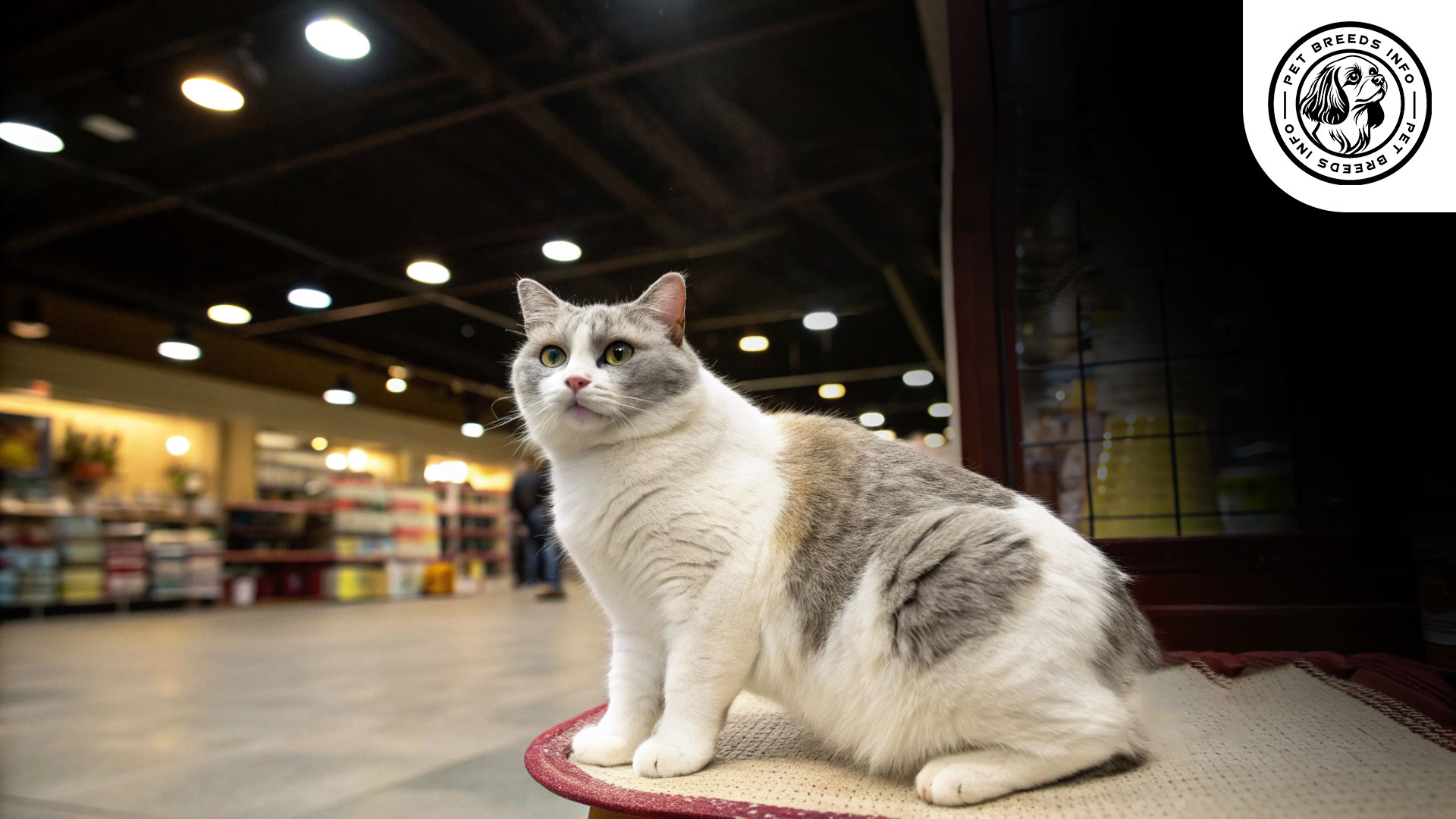
Final Thoughts
The Manx cat is a captivating breed that combines unique physical traits, such as its tailless or short-tailed appearance, with a charming and affectionate personality. Their intelligence, playfulness, and loyalty make them an ideal choice for families, singles, or seniors seeking a devoted companion. With proper care, including regular veterinary checkups to monitor their spinal health, a stimulating environment, and plenty of love, Manx cats thrive and bring joy to any household. Their adaptability to various living situations, from apartments to spacious homes, further enhances their appeal as versatile pets.
Choosing a Manx cat means welcoming a feline friend who will engage you with their dog-like devotion and spirited antics. Their ability to bond with humans and other animals, paired with their low-maintenance grooming needs, makes them a delightful addition to diverse lifestyles. By investing time in training, socialization, and enrichment, owners can unlock the full potential of this extraordinary breed. The Manx cat’s blend of elegance, curiosity, and warmth ensures they leave a lasting impression, making them a cherished companion for years to come.
FAQ
-
What is the defining characteristic of a Manx cat?
The Manx cat is known for its taillessness, ranging from completely absent (rumpy) to a short stump (stumpy), due to a natural genetic mutation.
-
Are Manx cats good family pets?
Yes, Manx cats are affectionate, playful, and social, making them excellent companions for families with children and other pets.
-
What are common health issues in Manx cats?
Manx cats are prone to Manx Syndrome, a spinal defect, as well as arthritis and digestive problems, requiring regular veterinary check-ups.
-
How much does a Manx cat cost?
Manx kittens from breeders range from $400 to $1,500; adoption from shelters is more affordable, typically $50 to $200.
-
What kind of care does a Manx cat need?
Manx cats require moderate exercise, grooming based on coat length, a high-quality diet, and regular health monitoring.
